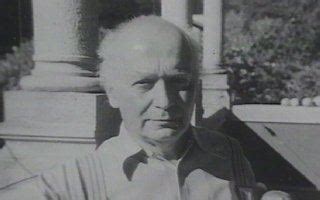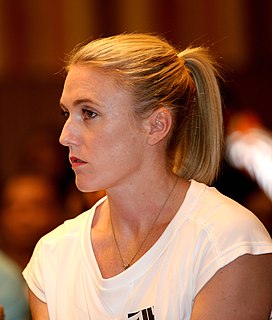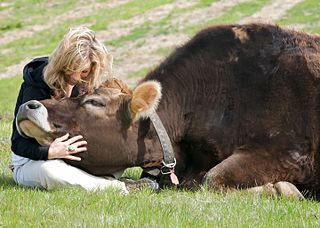A Quote by Rachel Zucker
I think it's a huge shortcoming of mine - this disconnect between the world of human and animals. We are animals.
Related Quotes
Many things that human words have upset are set at rest again by the
silence of animals. Animals move through the world like a caravan of
silence. A whole world, that of nature and that of animals, is filled
with silence. Nature and animals seem like protuberances of silence.
The silence of animals and the silence of nature would not be so great
and noble if it were merely a failure of language to materialize.
Silence has been entrusted to the animals and to nature as something
created for its own sake.
Typically, defenders of experiments on animals do not deny that animals suffer. They cannot deny the animals' suffering, because they need to stress the similarities between humans and other animals in order to claim that their experiments may have some relevance for human purposes. The experimenter who forces rats to choose between starvation and electric shock to see if they develop ulcers (which they do) does so because the rat has a nervous system very similar to a human being's, and presumably feels an electric shock in a similar way.
To be nonviolent to human beings and to be a killer or enemy of the poor animals is Satan's philosophy. In this age there is always enmity against poor animals, and therefore the poor creatures are always anxious. The reaction of the poor animals is being forced on human society, and therefore there is always strain of cold or hot war between men, individually, collectively or nationally.
It has been well said that the food one consumes determines one's thoughts. By eating the flesh of various animals, the qualities of these animals are imbibed. How sinful is it to feed on animals, which are sustained by the same five elements as human beings! This leads to demonic tendencies, besides committing the sin of inflicting cruelty on animals.
Our economic order is tightly woven around the exploitation of animals, and while it may seem easy to dismiss concern about animals as the soft-headed mental masturbation of people who really don't understand oppression and the depths of actual human misery, I hope to get you to think differently about suffering and pain, to convince you that animals matter, and to argue that anyone serious about ending domination and hierarchy needs to think critically about bringing animals into consideration.
The ruling British elite are like animals--not only in their morality, but in their outlook on knowledge. They are clever animals, who are masters of the wicked nature of their own species, and recognize ferally the distinctions of the hated human species. Nonetheless, obsessively dedicated to being such animals, they can not [sic] assimilate those qualities unique to true human beings.
99% of our uses of animals, including our numerically most significant use of them for food, do not involve any sort of necessity or any real conflict between human and nonhuman interests. If animals matter morally at all, then, even without accepting a theory of animal rights, those uses of animals cannot be morally justified.
It is not how we breed, keep and kill animals for human consumption that has been the impetus for vegetarianism for thousands of years. It is that we breed, keep and kill animals for human consumption. Throughout the centuries the common thread in the arguments against eating animals is the fact that since we have no nutritional requirement for the flesh or fluids of animals, killing them to simply satisfy our taste-buds or habits or customs amounts to senseless slaughter, and senseless slaughter is no small thing.






































